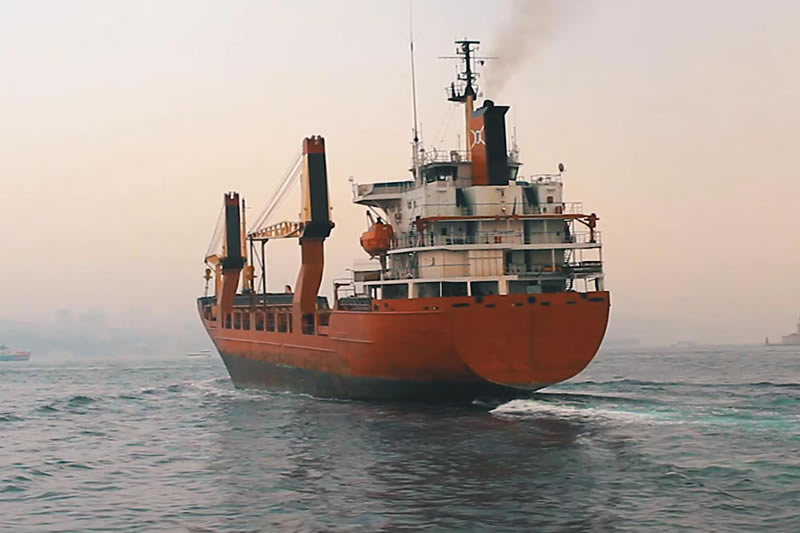Maritime Biofuel Test Yields 20% Emission Reductions
29
In its most recent assessment, the Global Centre for Maritime Decarbonisation (GCMD) has successfully achieved a noteworthy 20% decrease in emissions through trials involving maritime biofuels. The specific blend under scrutiny consisted of a 30% composition of hydrotreated vegetable oil biofuel, combined with 70% marine gas oil. GCMD's investigation centred on a dual-fuel liquefied petroleum gas (LPG) vessel, which exhibited the emission reduction when utilising the vegetable oil-infused biofuel in contrast to conventional very low sulfur fuel oil (VLSFO).

The Global Centre for Maritime Decarbonisation has been diligently conducting a series of tests using diverse biofuel combinations in the maritime shipping sector, all aimed at curtailing CO2 emissions. In the latest instance, this biofuel mixture was employed in the third of five supply chain bunkering trials, involving a substantial 200 million tons of the biofuel amalgam. Notably, the hydrotreated vegetable oil (HVO) component, constituting 30% of the blend, was entirely derived from waste and residues. This HVO was ingeniously incorporated into the trial as part of the blended fuel, synergising with marine gas oil provided by GoodFuels. The blended concoction served as the pivotal fuel for the LPG propulsion system.
These pilot tests of biofuel blends are oriented toward enabling maritime vessels to adhere to the updated regulations laid out by the International Maritime Organisation (IMO). The significance of these trials lies in their contribution to the joint efforts of the fuel and shipping sectors in formulating eco-friendly fuels, in line with the International Maritime Organisation's ambitious decarbonization objectives for 2030 and 2050.
Notably, in June, the IMO revisited its strategy for curbing greenhouse gas emissions, instating more stringent targets. The immediate objective is a 20–30% reduction in net emissions from maritime operations by 2030, followed by an even more ambitious 70–80% reduction target by 2040. In light of this, the GCMD emphasises that the recent testing, along with the previous two trials, ought to instill a greater sense of confidence among fuel consumers regarding their capacity to meet these revised stipulations.
Dr. Sanjay Kuttan, Chief Technical Officer at GCMD, elucidated, "This pilot initiative serves as a demonstration of how diverse tracing methods can safeguard the legitimacy and quantity of sustainable biofuels within the supply chain. Furthermore, employing a biofuel blend in conjunction with LPG emerges as a viable route for maritime vessels to attain the newly revised IMO benchmark for decarbonisation by 2030."
In the following months, GCMD is slated to execute the final two supply chain trials. These assessments are being conducted at the Port of Vlissingen in Flushing, the Netherlands. The gains in operational efficiency and the concurrent reduction in emissions are indeed a welcome outcome of these endeavors. Protea have a range of Marine and Shipping Emissions Analysers and Control Units and Scrubber Control Systems all providing a combined Continuous Emission Monitoring System (CEMS). Our Marine and Shipping Emissions Monitoring systems are also backed by global approvals which can be viewed at https://www.protea.ltd.uk/marine-approvals.
#protea #emissions #monitoring #cems #ftir #gas #analysers #shipping #marine
Other Articles
Carbon Capture Utilisation & Storage (CCUS) In 2026
16
Global Underground CO2 Storage Data Offers Hope Amid Rising Emissions
01
IMO Postpones Adoption Of Global Net-Zero Shipping Framework
04
Pioneering Carbon Capture Projects Ready For Construction
03
Methanol & Ammonia Deemed Ready As Zero-Emission Shipping Fuels
01
Carbon Capture Storage Reaching A Turning Point In Decarbonisation
13
CCS To Capture 15% Of Shipboard Carbon Emissions By 2050
29
Global Shipping Industry Struggles To Navigate Net Zero Transition
21
Carbon Capture Surges as Economics Policy & Industry Demand Align
14
GHG Emissions At Ports On The Rise Despite Initiatives
07